In the previous article of this series, we covered the trust aspect and explained why building it is the vital first step when it comes to effective and engaging emails. If you missed it or need a refresher, go back to it right now and return to this article right after.
In this article, we’re going to walk your through CTAs, how you match them to your audiences’ expectations and make your emails stand out in their inboxes. Let’s dig in!
- Match Your Call to Action
- Trust & CTAs
- Journeys
- Upsell & Cross-sell
- Referral Campaigns
- Word-of-Mouth Marketing
Match Your Call to Action
Every email you send must have a call to action. There should always be something that you want your reader to do. Don’t send an email for the sake of sending an email.
In addition, you have to make sure that your call to action matches the stage of the relationship you have with the audience that you’re targeting your email to.
For example, “Let’s start a family” may be a perfectly acceptable call to action for two people in an intimate relationship. But “Let’s start a family” is a totally inappropriate call to action for someone you’ve just met. This is a rather drastic example, but you know what we mean.
Trust & CTAs
Getting back to the Buyers’ Circles of Trust, it’s so important that your call to action is appropriate to the circle of trust you’re sending your email to. Getting someone to buy something from you may not necessarily be the appropriate call to action for someone who has no idea who you are or what your product is all about.
Instead, the most appropriate call to action is for them to give you a chance to prove yourself to them. This is the stage of the relationship where businesses typically use lead magnets.
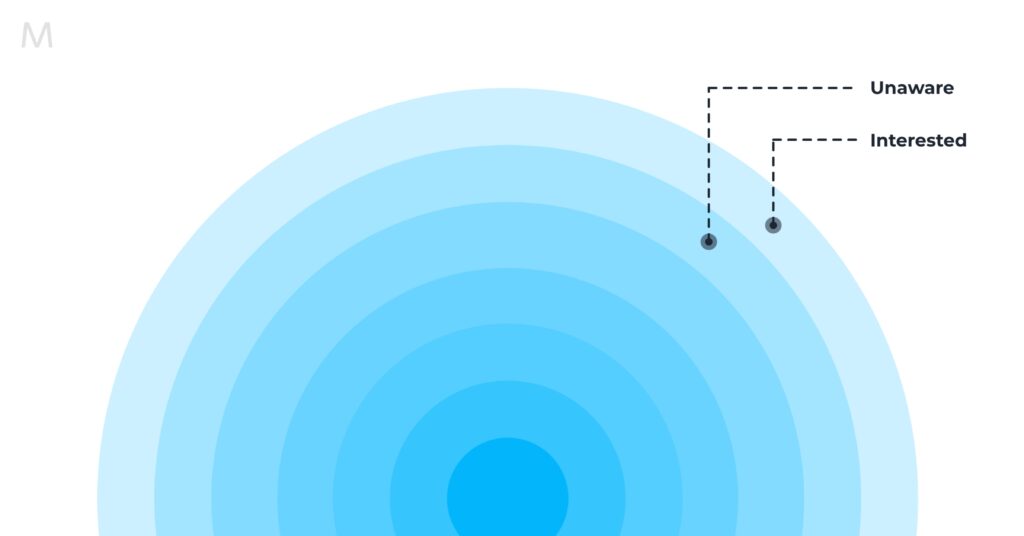
A lead magnet is something of value that you give away for free that demonstrates the benefits of your product or service. If you’re a realtor, maybe it’s a checklist for first time homebuyers who’ve never been through the process before. Maybe you include a downloadable spreadsheet that calculates how much a prospective buyer can afford and what the monthly payment will be given the amount financed and the interest rate.
If you’re selling handmade jewelry, maybe it’s your product catalog combined with your life’s story. Showcase your special pieces and give the backstory behind what inspired you to design what you did.
Journeys
Maropost Journeys are perfect for getting your prospects and your customers to move from one level of the Buyers’ Circles of Trust to the next inner level.
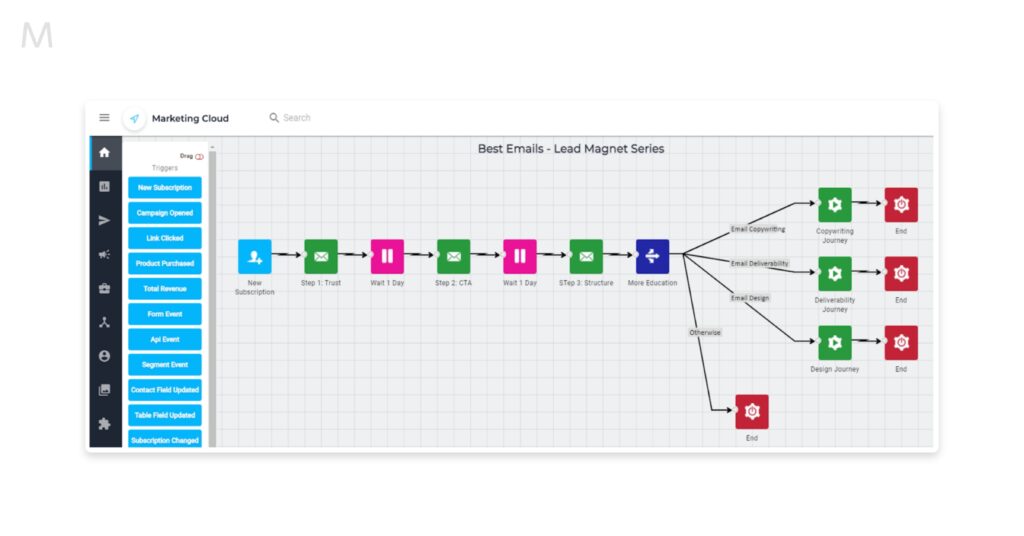
For example, a webinar can easily be a lead magnet. You can easily set up a Facebook Ad for a targeted audience. The call to action would be to sign up to receive the recordings of the webinar. Then, you could break up the recording into a few smaller videos and send them in a series of emails. You can follow up with another email that asks if they’d like to learn anything more. If they do, then send them into another lead magnet journey on the topic.
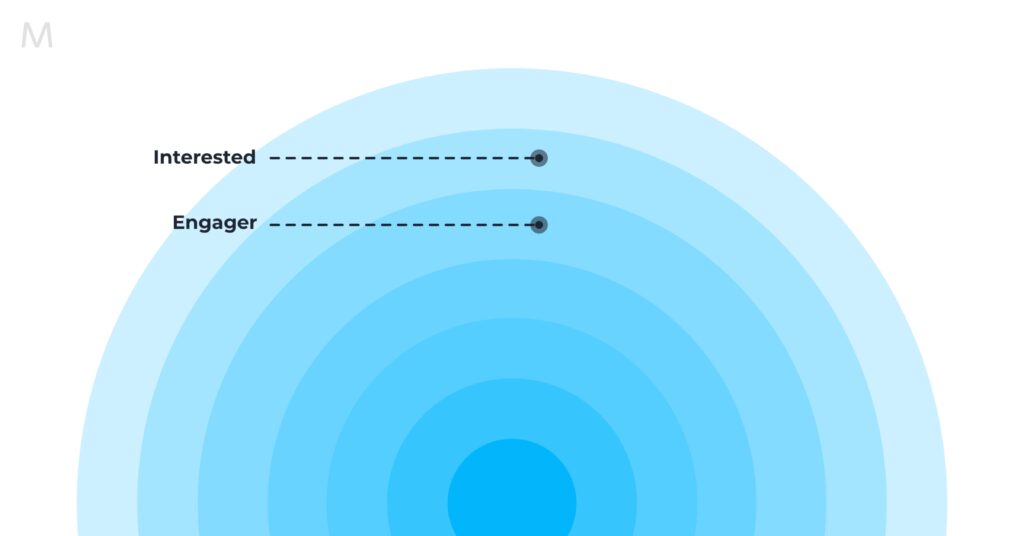
If your business sells subscription-based products or services, then the appropriate call to action would be to invite them to sign up for a free trial. Get them to engage with your product with no strings attached. Remember – this email is targeted to people who are only interested in your product. Now’s not the time to ask for any commitment.
The outcome of emails targeted to Engagers is to get them to become Buyers. If your Engagers are free trial users, then the emails you send to them should reinforce the benefits they’re receiving from your service. The call to action is to continue to receive those benefits. And the way to continue receiving those benefits is by becoming a paid subscriber.
If you’re a lifestyle or wellness coach, your Engagers are those who did a free consultation with you. And now you want to underscore the benefits of your service by reminding them of the key points you discussed with them during their free consultation.
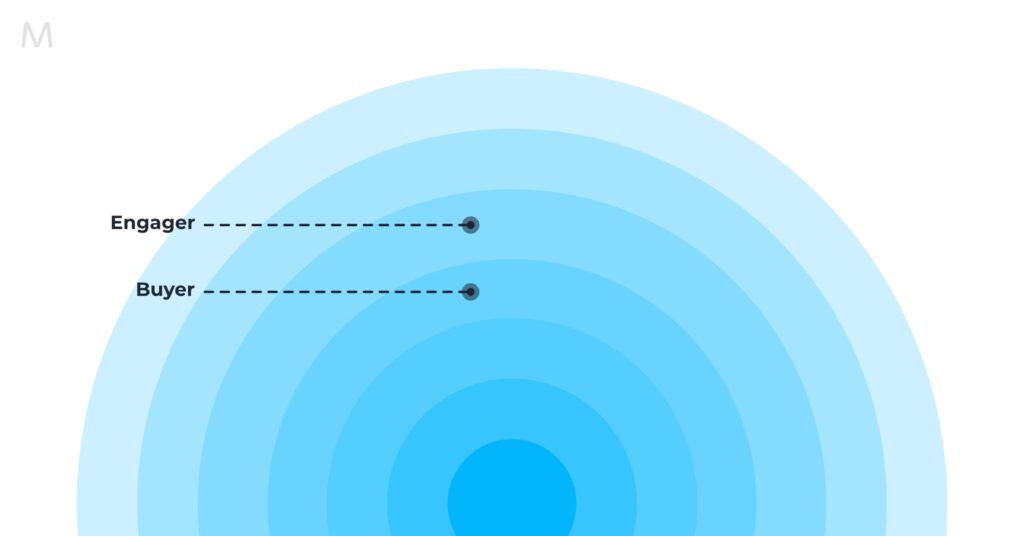
Upsell & Cross-sell
Moving a Buyer to become a Repeat Buyer is where you see Upsell and Cross-sell email campaigns. To those people who bought a facial cream you’ll send a series of emails highlighting your selection of lip gloss. To people who bought your necklaces send emails showcasing your bracelets. If you’re selling renewable products like nutritional supplements, cosmetics, dog food, or anything like it, you should send product renewal reminder emails.
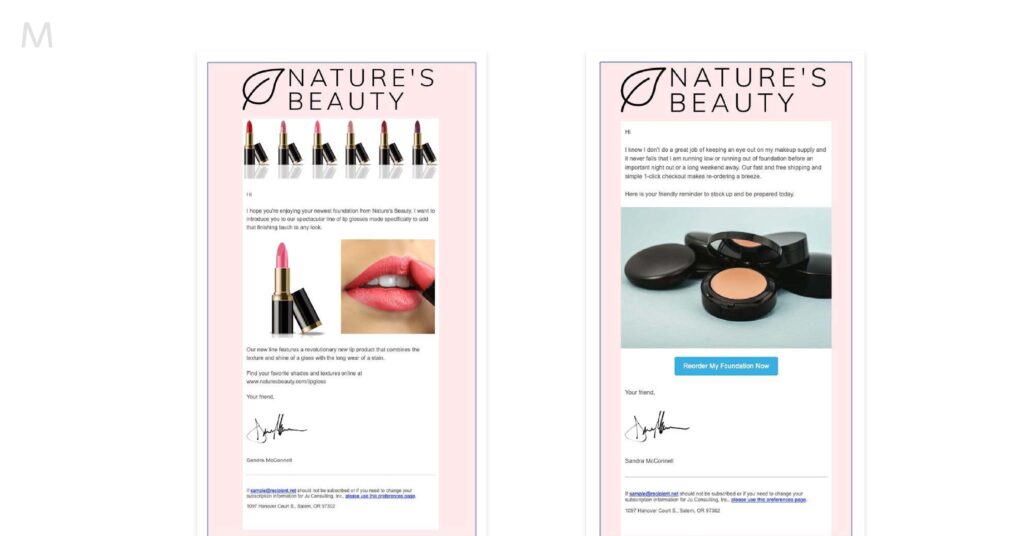
Getting a Buyer to become a Repeat Buyer is also typically where you find loyalty programs. A call to action to gain loyalty points by buying more products makes sense to a customer only if they’ve bought from you before. If they haven’t it’ll only lead to confusion.
Referral Campaigns
The call to action for a Repeat Buyer to become an Advocate is where you’ll typically find referral campaigns. If someone’s bought from you repeatedly, then obviously they trust you. And that’s why a call to action for someone to become an advocate for you makes total sense for someone who trusts you.
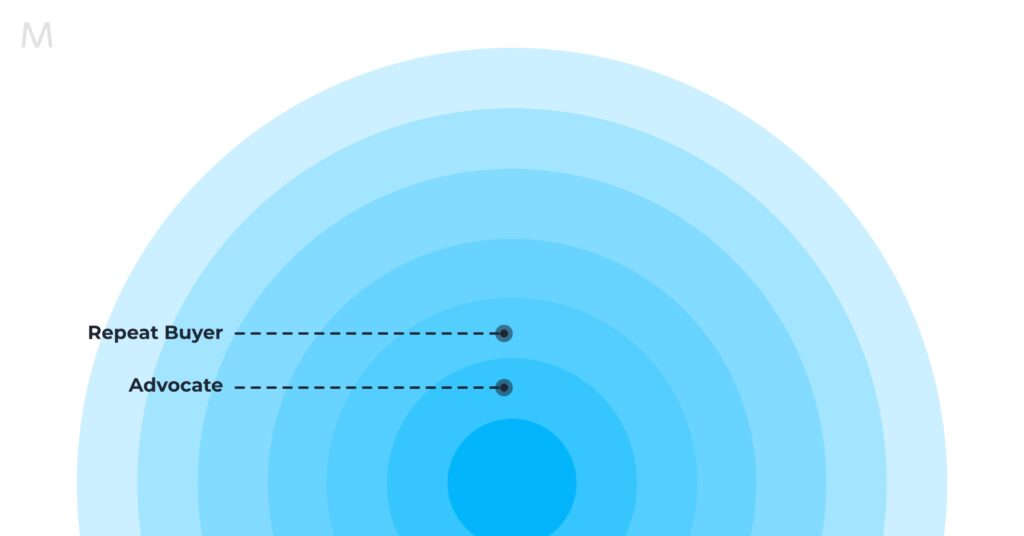
Advocacy is word of mouth within one’s own circle of trust. According to a recent survey, 83% of the survey respondents said that word-of-mouth recommendations from friends or family members make them more likely to purchase that product or service.
Word-of-Mouth Marketing
The purpose of the call to action for your Advocates is to get them to become your Promoters. Advocates and Promoters are similar in the sense that they’re both a form of Word-of-Mouth Marketing. The difference is in whom they talk to. Most people are comfortable talking about the benefits of your product to their friends. But not everyone is comfortable doing the same to strangers.
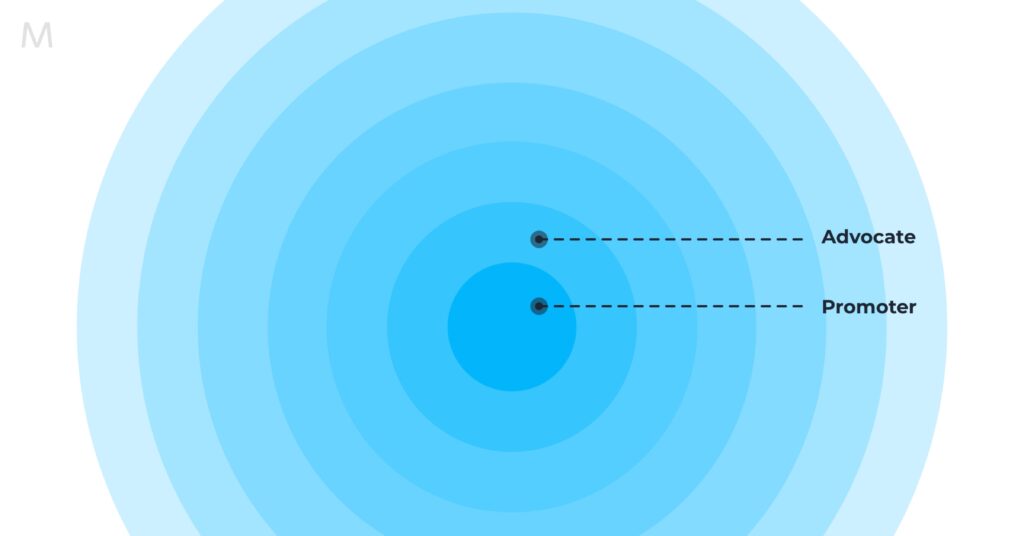
That’s why Promoters are your most valuable customers. These are people who trust your brand so much that they’re willing to recommend you to complete strangers. This is where you find solicitations for product reviews and recommendations. Here’s where you reach out to your customers and ask them for personal testimonials that you can post on your website. Or maybe you ask them to post a positive comment about your product on public forums like Yelp, Trip Advisor or G2 Crowd.
To make any email effective, it has to not only match your target audience’s expectations, but also have a certain structure. We’re going to explain it in the next section.
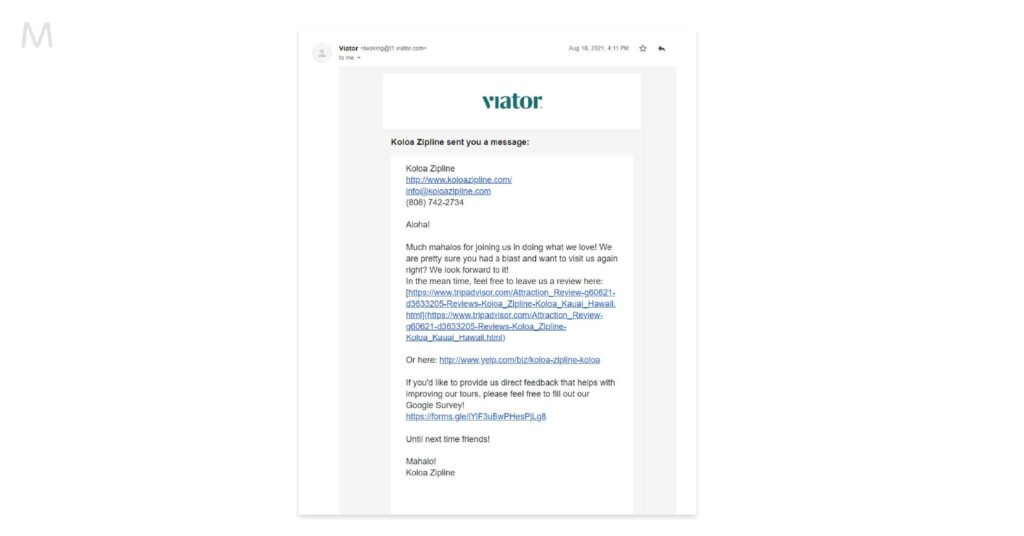
We hope that this breakdown will help you uplevel your email game. While there’s still a lot to discuss, stay tuned for the third and final part of this article series!
Need to chat about your email marketing strategy?
More than 10,000 marketers use Maropost to engage with their prospects and customers through emails, SMS, social media and more. We’re here to help you grow your business!
Chat Now
